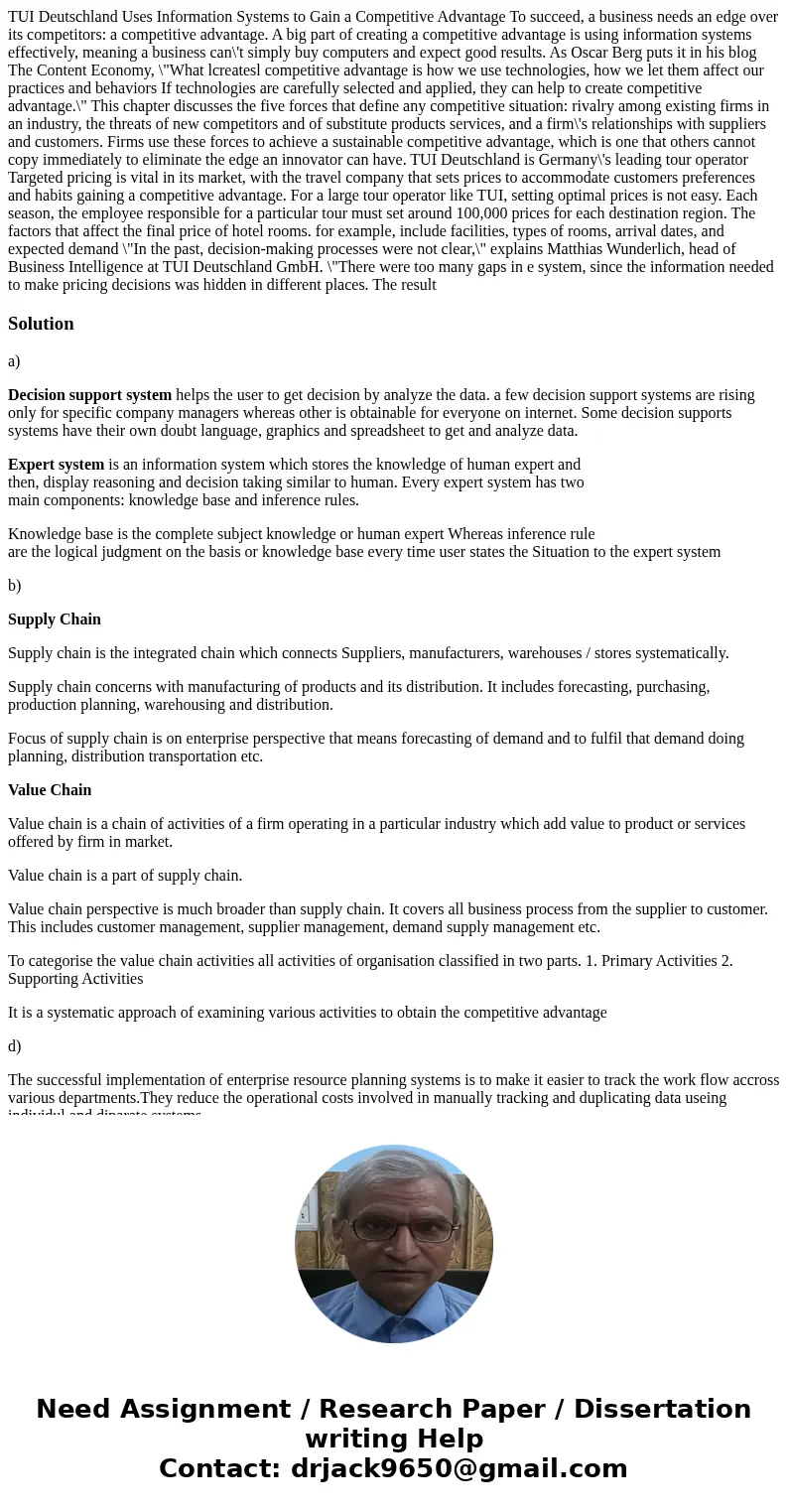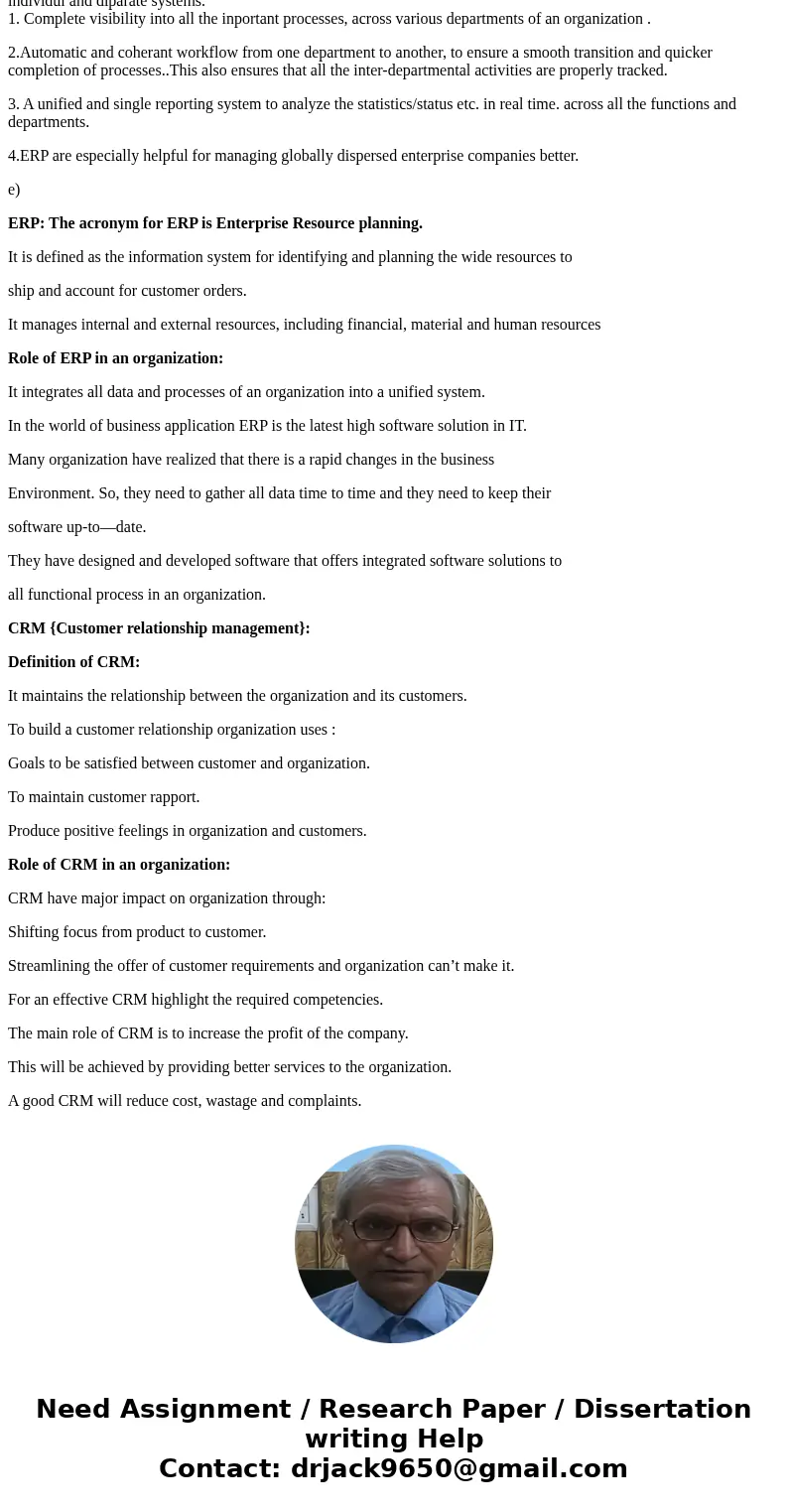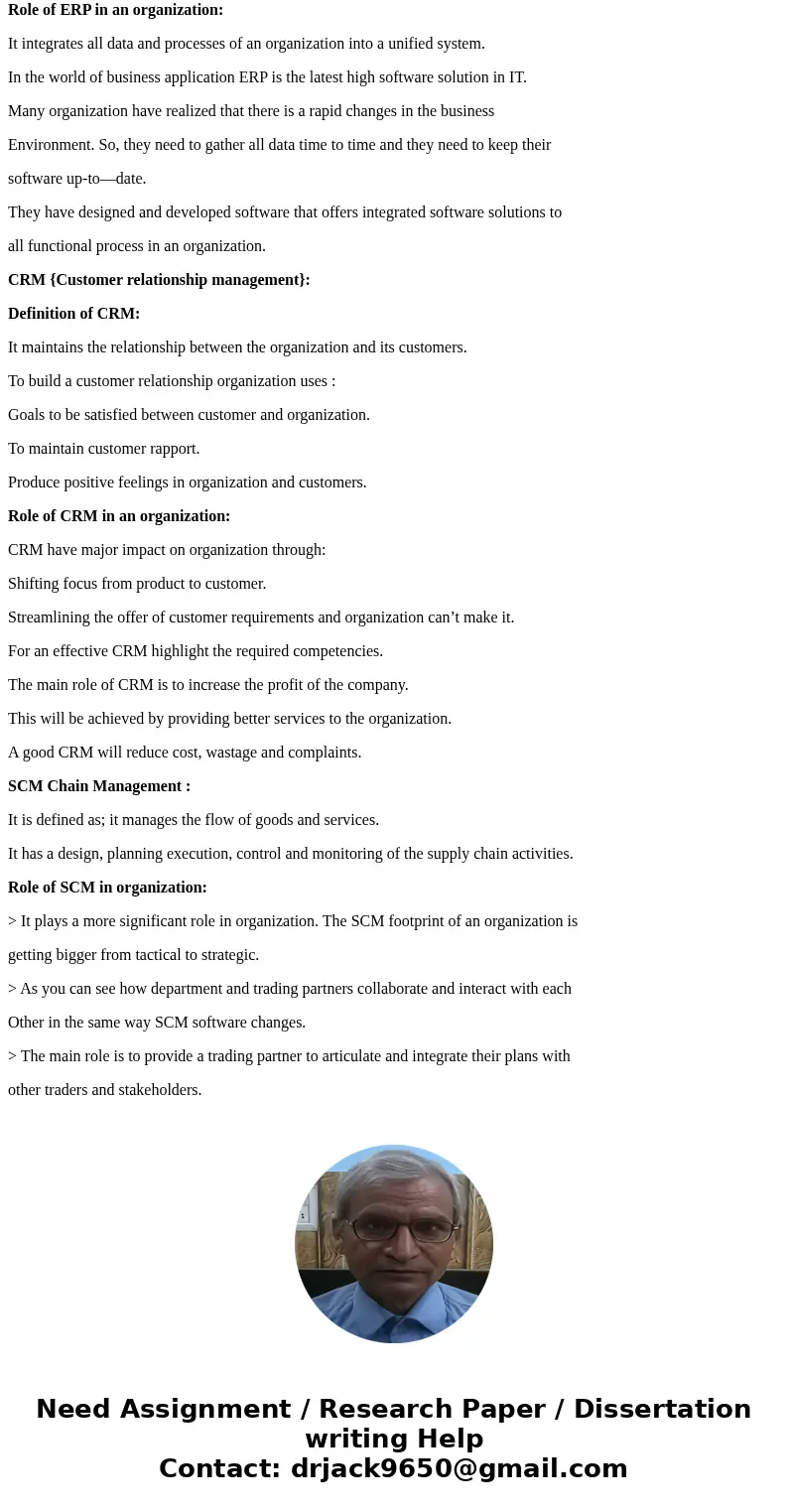TUI Deutschland Uses Information Systems to Gain a Competiti
Solution
a)
Decision support system helps the user to get decision by analyze the data. a few decision support systems are rising only for specific company managers whereas other is obtainable for everyone on internet. Some decision supports systems have their own doubt language, graphics and spreadsheet to get and analyze data.
Expert system is an information system which stores the knowledge of human expert and
then, display reasoning and decision taking similar to human. Every expert system has two
main components: knowledge base and inference rules.
Knowledge base is the complete subject knowledge or human expert Whereas inference rule
are the logical judgment on the basis or knowledge base every time user states the Situation to the expert system
b)
Supply Chain
Supply chain is the integrated chain which connects Suppliers, manufacturers, warehouses / stores systematically.
Supply chain concerns with manufacturing of products and its distribution. It includes forecasting, purchasing, production planning, warehousing and distribution.
Focus of supply chain is on enterprise perspective that means forecasting of demand and to fulfil that demand doing planning, distribution transportation etc.
Value Chain
Value chain is a chain of activities of a firm operating in a particular industry which add value to product or services offered by firm in market.
Value chain is a part of supply chain.
Value chain perspective is much broader than supply chain. It covers all business process from the supplier to customer. This includes customer management, supplier management, demand supply management etc.
To categorise the value chain activities all activities of organisation classified in two parts. 1. Primary Activities 2. Supporting Activities
It is a systematic approach of examining various activities to obtain the competitive advantage
d)
The successful implementation of enterprise resource planning systems is to make it easier to track the work flow accross various departments.They reduce the operational costs involved in manually tracking and duplicating data useing individul and diparate systems.
1. Complete visibility into all the inportant processes, across various departments of an organization .
2.Automatic and coherant workflow from one department to another, to ensure a smooth transition and quicker completion of processes..This also ensures that all the inter-departmental activities are properly tracked.
3. A unified and single reporting system to analyze the statistics/status etc. in real time. across all the functions and departments.
4.ERP are especially helpful for managing globally dispersed enterprise companies better.
e)
ERP: The acronym for ERP is Enterprise Resource planning.
It is defined as the information system for identifying and planning the wide resources to
ship and account for customer orders.
It manages internal and external resources, including financial, material and human resources
Role of ERP in an organization:
It integrates all data and processes of an organization into a unified system.
In the world of business application ERP is the latest high software solution in IT.
Many organization have realized that there is a rapid changes in the business
Environment. So, they need to gather all data time to time and they need to keep their
software up-to—date.
They have designed and developed software that offers integrated software solutions to
all functional process in an organization.
CRM {Customer relationship management}:
Definition of CRM:
It maintains the relationship between the organization and its customers.
To build a customer relationship organization uses :
Goals to be satisfied between customer and organization.
To maintain customer rapport.
Produce positive feelings in organization and customers.
Role of CRM in an organization:
CRM have major impact on organization through:
Shifting focus from product to customer.
Streamlining the offer of customer requirements and organization can’t make it.
For an effective CRM highlight the required competencies.
The main role of CRM is to increase the profit of the company.
This will be achieved by providing better services to the organization.
A good CRM will reduce cost, wastage and complaints.
SCM Chain Management :
It is defined as; it manages the flow of goods and services.
It has a design, planning execution, control and monitoring of the supply chain activities.
Role of SCM in organization:
> It plays a more significant role in organization. The SCM footprint of an organization is
getting bigger from tactical to strategic.
> As you can see how department and trading partners collaborate and interact with each
Other in the same way SCM software changes.
> The main role is to provide a trading partner to articulate and integrate their plans with
other traders and stakeholders.



 Homework Sourse
Homework Sourse